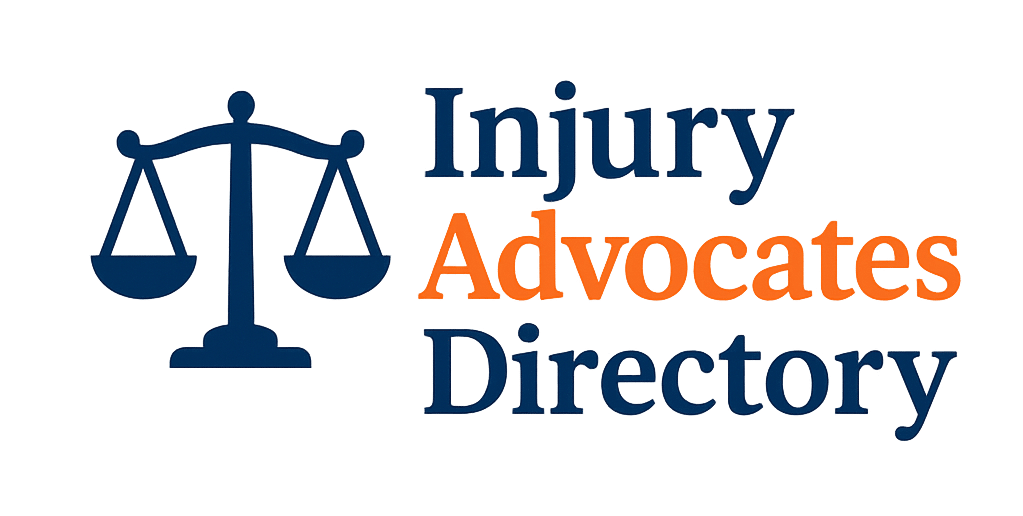Experiencing an injury at work can be a challenging and confusing time for employees. On top of dealing with recovery, workers often wonder about their job security and the potential for wrongful termination. This article aims to clarify the complexities surrounding understanding wrongful termination after workplace injuries and provide essential insights for employees facing this situation.
It is crucial for injured workers to know their rights and what actions to take if they find themselves the victims of wrongful termination. This article will cover key aspects of this issue, such as legal protections and steps to take if faced with termination.
Can I be fired while on workers’ compensation?
One of the most common concerns for injured workers is whether they can be fired while receiving workers' compensation. In general, while an employer can terminate an employee on workers’ comp, they cannot do so for discriminatory reasons related to the injury.
Legal protections exist to ensure that workers are not unjustly fired while on leave for recovery. For example, employees cannot be terminated solely for filing a workers' compensation claim, as this could be considered retaliation.
However, employers can legally terminate employees for valid business reasons unrelated to their injuries, such as company layoffs or performance issues. It's essential for workers to understand these distinctions to protect their rights effectively.
What to do if you’ve been wrongfully terminated due to an injury?
If you believe you have been wrongfully terminated due to a workplace injury, it is vital to take immediate action. First, gather all relevant documentation, including your termination notice, medical records, and any communications with your employer related to your injury.
Next, consider consulting a wrongful termination attorney who specializes in employment law. They can provide valuable guidance on your situation and help you determine if you have a valid claim.
- Document all instances of discrimination or retaliation.
- File a complaint with the Workers' Compensation Board.
- Seek legal advice to understand your options for filing a lawsuit.
- Consider reaching out to labor unions for support.
Taking these steps can help ensure that you are protecting your rights and seeking the compensation you deserve after a wrongful termination.
What are the legal protections against wrongful termination?
Legal protections against wrongful termination are primarily governed by state laws and regulations. For instance, the California Labor Code prohibits employers from retaliating against workers who file workers' compensation claims.
Additionally, the Occupational Safety and Health Administration (OSHA) provides guidelines that protect employees who report unsafe working conditions. Employees should familiarize themselves with these laws to understand their rights better.
Some protections include:
- Prohibition of termination for filing a workers' compensation claim.
- Protection against firing due to whistle-blowing on safety violations.
- Legal recourse for employees who are wrongfully terminated.
- Rights to reinstatement and compensation under certain conditions.
Understanding these protections is crucial for employees to defend themselves against wrongful termination and to know their legal rights.
How can you prove wrongful termination after a workplace injury?
Proving wrongful termination after a workplace injury requires a careful approach. First, maintain thorough documentation of all communications with your employer regarding your injury, including emails, letters, and notes from conversations.
Next, gather evidence that supports your claim. This may include witness statements from colleagues who can attest to your work performance or the circumstances surrounding your termination.
Additionally, it is essential to demonstrate that your termination was directly related to your injury or the filing of a workers' compensation claim. Evidence can include:
- Medical records proving your injury.
- Records showing the timeline of your injury and termination.
- Any relevant company policies that may have been violated.
Working with a qualified attorney can significantly strengthen your case and help you navigate the complexities of wrongful termination claims.
What are the acceptable reasons for termination while on workers’ comp?
While it is illegal to fire someone for filing a workers' compensation claim, there are acceptable reasons for termination that are unrelated to the injury. These reasons may include:
- Performance issues that were documented prior to the injury.
- Company downsizing or layoffs that affect multiple employees.
- Violations of company policies unrelated to the injury.
- Failure to return to work in a reasonable time frame, depending on the circumstances.
Understanding these acceptable reasons can help workers identify whether their termination was indeed wrongful or if it followed legitimate business practices.
How can an attorney help with wrongful termination cases?
A wrongful termination attorney can be an invaluable ally for employees navigating the complexities of wrongful termination cases. They offer expertise in employment law and can assess the specifics of your situation.
Attorneys can help by providing guidance on documentation, representing you in negotiations, and filing lawsuits if necessary. Their experience can significantly increase the chances of a favorable outcome in your case.
Some of the critical roles an attorney plays include:
- Evaluating the strength of your case.
- Advising you on legal rights and protections.
- Assisting in gathering necessary evidence.
- Negotiating settlements with employers or their insurers.
Having legal representation can empower employees to fight for their rights and secure the compensation they deserve.
What should you do if you are fired after filing a workers’ comp claim?
If you are fired after filing a workers’ compensation claim, it is essential to act quickly. Document the circumstances surrounding your termination, including dates, times, and conversations with your employer.
Consulting with a wrongful termination attorney is critical, as they can help you understand your legal options and guide you through the process of filing a complaint or lawsuit if appropriate.
Additionally, you should consider filing a complaint with the appropriate state agency, such as the Workers' Compensation Board. This action can initiate an investigation into your termination and potentially provide you with more information about your rights.
Related questions about wrongful termination after workplace injuries
How hard is it to win a wrongful termination lawsuit?
Winning a wrongful termination lawsuit can vary in difficulty based on several factors, including the strength of evidence and the specifics of the case. If there is clear documentation showing that the termination was tied to the injury or the filing of a claim, the chances of success increase significantly.
However, proving wrongful termination often involves navigating complex laws and regulations. Having a knowledgeable attorney can improve your odds by ensuring that you have a strong case and that all necessary evidence is presented effectively.
How to get your job back after being wrongfully terminated?
Securing reinstatement after wrongful termination often involves legal action. First, consult with an attorney to understand the steps necessary to file a claim or lawsuit. From there, the process may involve mediation or a hearing to present your case to an employment law board or court.
It is essential to demonstrate the reasons for your termination were invalid and that you were wrongfully dismissed. If successful, you may be entitled to reinstatement, back pay, and other compensatory damages.
How do you know if you were wrongfully terminated?
Determining if you were wrongfully terminated typically involves assessing the circumstances of your dismissal. Factors to consider include the timing of your termination relative to your injury or claim, as well as any communications from your employer regarding the reason for your dismissal.
Additionally, reviewing company policies and state laws can help clarify whether your termination violates any legal protections. Consulting with an attorney who specializes in wrongful termination can provide further insights into your situation.
What qualifies as wrongful termination in CA?
In California, wrongful termination is defined as firing an employee in violation of state or federal laws. This includes termination due to discrimination, retaliation for filing a workers' compensation claim, or firing someone for exercising their legal rights.
Employees in California are protected under various laws, including the California Labor Code, which prohibits retaliation against workers for reporting unsafe conditions or filing claims. Understanding these legal definitions can help employees identify wrongful termination cases.
For those who have faced wrongful termination after a workplace injury, knowing your rights and the legal protection available is essential. By understanding wrongful termination and taking appropriate actions, injured workers can navigate these challenging situations more effectively.

